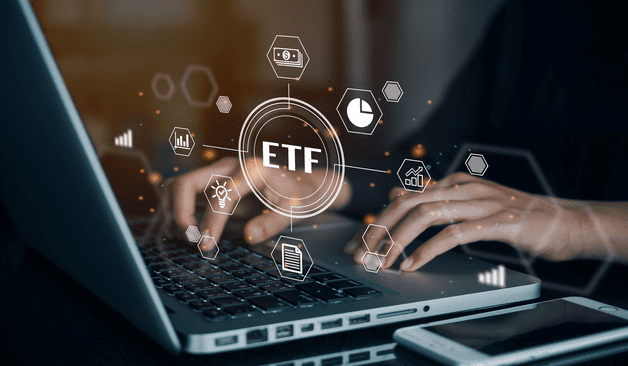
Is all the hype around ETFs worth it?
One of the most discussed topics among investors today is Exchange Traded Funds (ETFs). Some investors plan to create their complete portfolio with ETFs, while some believe there are limited options. If you are one of those investors who is confused about investing in ETFs, you must first learn and understand ETFs. Then, decide whether it is an ideal investment option for you or not.
ETF numbers: The hype is real.
The following numbers are an indication that ETFs are growing, and investors must look at them as a serious investment option:
- Global ETF Asset Under Management (AUM) has grown from $212 billion in 2003 to $9.2 trillion as of May 2022. The total ETF count has increased from 291 to 8,966 during the same period
- In India, ETFs are new, and most of the growth in AUM and the number of schemes has happened in the last three years
- AUM has increased almost three times, and the number of ETFs has nearly doubled in the last three years
What is an Exchange Traded Fund (ETF)?
An ETF is an open-ended collective investment scheme that trades on different exchanges. Like other funds, ETFs allow investors to invest in equity shares, bonds, and other asset classes.
ETFs usually track an index. Hence, their risks and returns are the same as an index. When you buy an ETF, you purchase its underlying assets (equity, gold, bonds). It may sound like mutual funds. Before you get confused, let us explain the difference.
ETFs v/s Mutual funds
ETFs and mutual funds have some underlying assets. When you invest in them, your investment goes into the underlying assets. There is a significant difference in the way they are managed. Mutual funds are actively-managed, while ETFs are passively-managed funds. Let us understand the difference with an example.
Assume you need to form a class of the best 30 students from the available pool of 500 students. You conduct a test and score them. There are two ways to for a class of 30 students:
- Pick the 30 students with the highest marks (top 30).
- You consider marks as one of the criteria but check other factors - previous exam results, talk to them to evaluate their future potential, etc. Based on the end-to-end evaluation, you pick the top 30.
The former option is passively-managed. You conduct exams regularly and remove and add students from the class based on performance (ETFs). The latter option is actively-managed - you keep looking for the best students. You continuously monitor all the students, and if you find a student with the potential to outperform, you enroll in your class (mutual funds).
Hopefully, the above example helped you to understand the difference. Let us shift our focus to ETFs completely.
How do ETFs work?
ETFs share characteristics with mutual funds (the concept of underlying assets) and stocks (they can be traded like stocks). You will find ETFs listed on the stock exchanges (BSE and NSE) similar to equity stocks.
ETFs' prices change during the trading window, and the change in ETFs' share prices depends on the cost of the underlying assets. If the underlying asset's price rises, the ETF's share price rises. The price may also increase or decrease depending on the demand and supply equation. However, in the end, the price should match the underlying asset price (iNAV).
Why so many people are investing in ETFs - Advantages
Below are the advantages of ETFs:
- You know what you are investing: ETFs track an index (equity ETFs). Hence, you know exactly where your money is going.
- Offer the best of both worlds: You get diversification similar to mutual funds and trading flexibility, similar to stocks.
- Cost-effective: In our example above, if you had to create a class with the first option, it would be easy for you, right? In the second option, the effort is more. Hence charges would be high. ETFs are cost-effective as the expense ratio associated with them is low.
- Variety of options: Investors can create their portfolio with ETFs as there are equity ETFs, gold ETFs, debt ETFs, and international ETFs.
Things to take care of before investing in ETFs
Undoubtedly, ETFs are excellent investment options for investors looking to get good returns without taking much risk. However, there are a few things you must note before picking an ETF for investment:
Tracking error: Ideally, ETFs are expected to track the underlying index. However, there is some difference between ETF returns and index returns. The difference is known as tracking error. You must pick ETFs with the least tracking error.
Volume/Liquidity: ETFs are relatively new investment options in India, and limited investors invest/trade in them. Ensure the volume in the ETFs you want to invest in is high. There should be sufficient liquidity to allow you to buy and sell ETFs.
The future
There is no doubt that ETFs are a brilliant investment option. Fortunately, even our system looks at ETFs in the same way. SEBI, in a circular titled - Development of Passive Funds, has announced several measures to boost the passive ecosystem in India. SEBI is focused on increasing the secondary market liquidity and giving a boost to the debt ETF space.
Disclaimer: ICICI Securities Ltd. (I-Sec). Registered office of I-Sec is at ICICI Securities Ltd. - ICICI Venture House, Appasaheb Marathe Marg, Prabhadevi, Mumbai - 400 025, India, Tel No : 022 - 6807 7100. The contents herein above shall not be considered as an invitation or persuasion to trade or invest. I-Sec and affiliates accept no liabilities for any loss or damage of any kind arising out of any actions taken in reliance thereon. AMFI Regn. No.: ARN-0845. We are distributors for Mutual funds. Mutual Fund Investments are subject to market risks, read all scheme related documents carefully. Please note, Mutual Fund related services are not Exchange traded products and I-Sec is just acting as distributor to solicit these products. All disputes with respect to the distribution activity, would not have access to Exchange investor redressal forum or Arbitration mechanism. The contents herein above are solely for informational purpose and may not be used or considered as an offer document or solicitation of offer to buy or sell or subscribe for securities or other financial instruments or any other product. Investments in securities market are subject to market risks, read all the related documents carefully before investing. The contents herein mentioned are solely for informational and educational purpose.
 Invest
Invest



